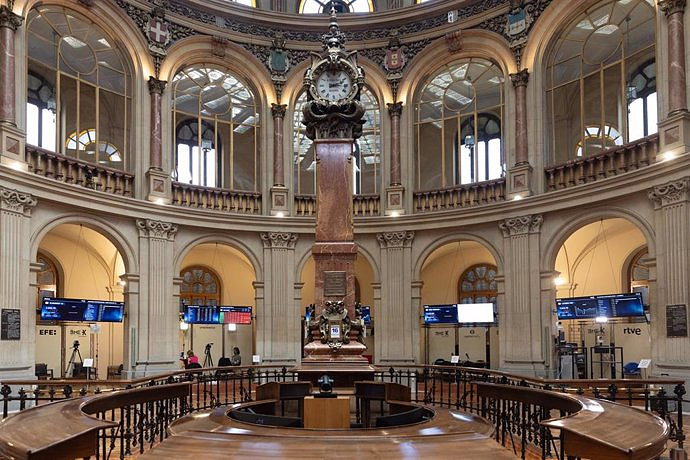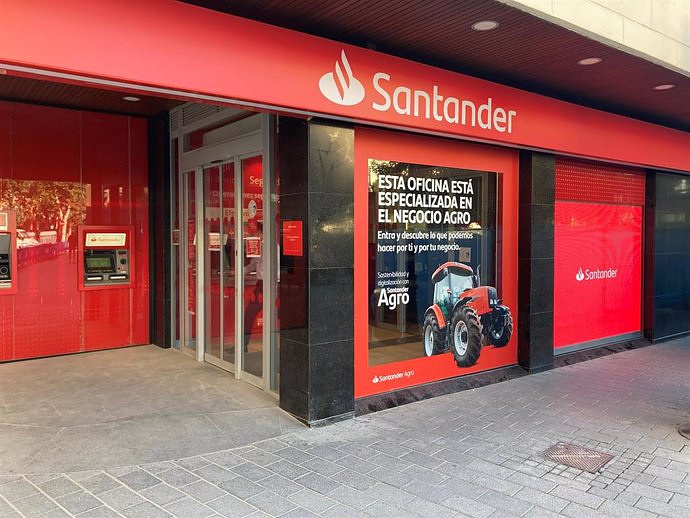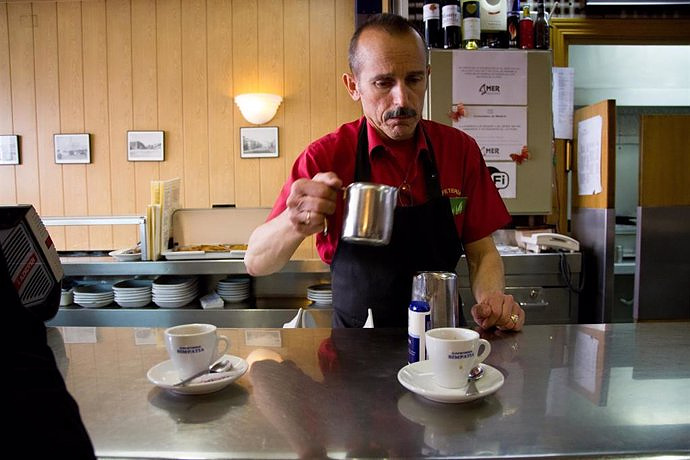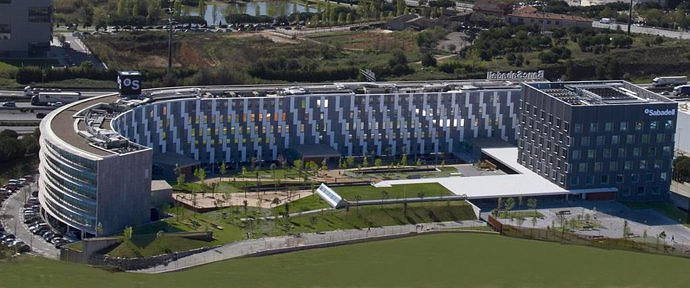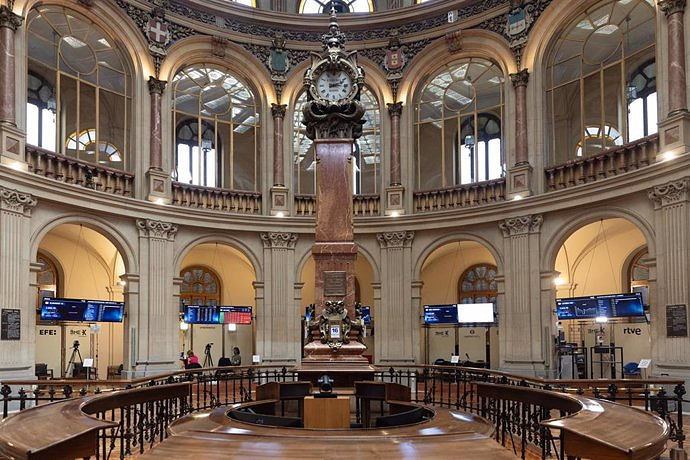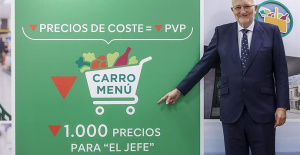Gabilondo's 'number two' has already asked to stop the extradition of one of them until there is a firm judicial resolution
MADRID, 31 May. (EUROPA PRESS) -
The first deputy of the Ombudsman, Teresa Jiménez-Becerril, has asked the Ministry of the Interior if it is going to grant asylum in Spain to two Venezuelan opponents, Rolando Figueroa and Ernesto Quintero, after the Congress of Deputies approved last week a initiative of the Popular Party to suspend both extraditions and provide them with protection.
Jiménez-Becerril has asked the general director of Internal Policy, Carmen López, dependent on the Ministry of the Interior, to report on the measures that are going to be taken to "comply" with the parliamentary motion approved in Congress last Thursday.
"That is, to grant asylum, in accordance with what was approved in the Congress of Deputies, both to Mr. Quintero Méndez and to you," Jiménez-Becerril assures in a letter this Tuesday addressed to opponent Rolando Figueroa and collected by Europe Press.
The Lower House carried out the PP proposal with the votes in favor of Vox and Ciudadanos, the rejection of the PSOE and BNG and the abstention of United We Can or Esquerra Republicana. They were debating suspending the extraditions and granting asylum to both for humanitarian reasons as they are "persecuted in their country because of their political commitment."
Jiménez-Becerril already asked in April to "paralyze" the extradition of opposition figure Figueroa, who is wanted by Venezuela for an alleged crime of fraud -- something he attributes to political persecution -- until there is a firm judicial resolution on the decision. of the Ministry of the Interior to deny him asylum.
Venezuela requested Figueroa's extradition in 2018 for allegedly defrauding a woman who had contracted several medical treatments with a health company. The alleged victim reportedly paid more than $200,000 without receiving any treatment. In an interview with Europa Press, Figueroa declared himself "totally innocent", assuring that he was only a legal advisor to the company that would have carried out the scam: "My crime has been to think differently."
The extradition was approved in July 2020 but, due to logistical problems due to the pandemic, it was never carried out. A year later it was reactivated, although it was suspended again after Figueroa made a second asylum request to Spain.
In August 2021, the Criminal Chamber of the National Court (AN) decreed the provisional release of Figueroa, who was detained in a prison in A Coruña awaiting a resolution on his second asylum request or his delivery to Venezuela.
On April 12, the Interior denied him asylum again for the same reasons, that is, understanding that he was a grassroots militant whose opposition work was not prominent enough to be a victim of persecution by the government of Nicolás Maduro.
Regarding Quintero, the National Court agreed this February to go ahead with his extradition for an alleged crime of fraud, considering that the last request for asylum that he has made in Spain is an attempt to "mock" his trip to Caracas. The delivery was temporarily halted because he tested positive for coronavirus.
Quintero was arrested in Madrid on February 10, 2021, after both the Government and the AN authorized his extradition at the request of the Venezuelan authorities, who accuse him of being a member of the leadership of a currency exchange agency that would have scammed 40 million dollars. The opponent, for his part, affirms that he was a mere employee and that he has nothing to do with the crimes that could have been committed on Venezuelan soil.
Quintero's surrender, according to his defense, "makes no sense" because the AN has denied other claims by Venezuela, arguing that there were no guarantees of compliance with human rights.

 Exploring Cardano: Inner Workings and Advantages of this Cryptocurrency
Exploring Cardano: Inner Workings and Advantages of this Cryptocurrency Seville.- Economy.- Innova.- STSA inaugurates its new painting and sealing hangar in San Pablo, for 18 million
Seville.- Economy.- Innova.- STSA inaugurates its new painting and sealing hangar in San Pablo, for 18 million Innova.- More than 300 volunteers join the Andalucía Compromiso Digital network in one month to facilitate access to ICT
Innova.- More than 300 volunteers join the Andalucía Compromiso Digital network in one month to facilitate access to ICT Innova.-AMP.- Ayesa acquires 51% of Sadiel, which will create new technological engineering products and expand markets
Innova.-AMP.- Ayesa acquires 51% of Sadiel, which will create new technological engineering products and expand markets STATEMENT: The final convention in Courmayeur closed the Coppa Delle Alpi 2024
STATEMENT: The final convention in Courmayeur closed the Coppa Delle Alpi 2024 STATEMENT: Rainbow Robotics participates in ICRA 2024 in Yokohama, Japan
STATEMENT: Rainbow Robotics participates in ICRA 2024 in Yokohama, Japan Study identifies new genetic form of Alzheimer's
Study identifies new genetic form of Alzheimer's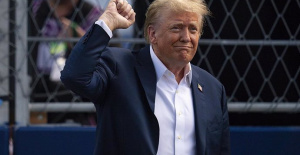 Judge Juan Merchan fines Trump for contempt of court in 'Stormy Daniels' bribery case
Judge Juan Merchan fines Trump for contempt of court in 'Stormy Daniels' bribery case How Blockchain in being used to shape the future
How Blockchain in being used to shape the future Not just BTC and ETH: Here Are Some More Interesting Coins Worth Focusing on
Not just BTC and ETH: Here Are Some More Interesting Coins Worth Focusing on UMH researchers are working on a high-quality apricot crop that requires less irrigation water
UMH researchers are working on a high-quality apricot crop that requires less irrigation water The UPV develops an application to improve the quality of life of patients with glioblastoma
The UPV develops an application to improve the quality of life of patients with glioblastoma A sensor system obtains the fingerprint of essential oils and detects if they have been adulterated
A sensor system obtains the fingerprint of essential oils and detects if they have been adulterated Faraday UPV presents the 'Origin' rocket to exceed 10 km of flight: "It is the beginning of the journey to space"
Faraday UPV presents the 'Origin' rocket to exceed 10 km of flight: "It is the beginning of the journey to space" A million people demonstrate in France against Macron's pension reform
A million people demonstrate in France against Macron's pension reform Russia launches several missiles against "critical infrastructure" in the city of Zaporizhia
Russia launches several missiles against "critical infrastructure" in the city of Zaporizhia A "procession" remembers the dead of the Calabria shipwreck as bodies continue to wash up on the shore
A "procession" remembers the dead of the Calabria shipwreck as bodies continue to wash up on the shore Prison sentences handed down for three prominent Hong Kong pro-democracy activists
Prison sentences handed down for three prominent Hong Kong pro-democracy activists ETH continues to leave trading platforms, Ethereum balance on exchanges lowest in 3 years
ETH continues to leave trading platforms, Ethereum balance on exchanges lowest in 3 years Investors invest $450 million in Consensys, Ethereum incubator now valued at $7 billion
Investors invest $450 million in Consensys, Ethereum incubator now valued at $7 billion Alchemy Integrates Ethereum L2 Product Starknet to Enhance Web3 Scalability at a Price 100x Lower Than L1 Fees
Alchemy Integrates Ethereum L2 Product Starknet to Enhance Web3 Scalability at a Price 100x Lower Than L1 Fees Mining Report: Bitcoin's Electricity Consumption Declines by 25% in Q1 2022
Mining Report: Bitcoin's Electricity Consumption Declines by 25% in Q1 2022 Oil-to-Bitcoin Mining Firm Crusoe Energy Systems Raised $505 Million
Oil-to-Bitcoin Mining Firm Crusoe Energy Systems Raised $505 Million Microbt reveals the latest Bitcoin mining rigs -- Machines produce up to 126 TH/s with custom 5nm chip design
Microbt reveals the latest Bitcoin mining rigs -- Machines produce up to 126 TH/s with custom 5nm chip design Bitcoin's Mining Difficulty Hits a Lifetime High, With More Than 90% of BTC Supply Issued
Bitcoin's Mining Difficulty Hits a Lifetime High, With More Than 90% of BTC Supply Issued The Biggest Movers are Near, EOS, and RUNE during Friday's Selloff
The Biggest Movers are Near, EOS, and RUNE during Friday's Selloff Global Markets Spooked by a Hawkish Fed and Covid, Stocks and Crypto Gain After Musk Buys Twitter
Global Markets Spooked by a Hawkish Fed and Covid, Stocks and Crypto Gain After Musk Buys Twitter Bitso to offset carbon emissions from the Trading Platform's ERC20, ETH, and BTC Transactions
Bitso to offset carbon emissions from the Trading Platform's ERC20, ETH, and BTC Transactions Draftkings Announces 2022 College Hoops NFT Selection for March Madness
Draftkings Announces 2022 College Hoops NFT Selection for March Madness
